Marilyn Nelson
The Truceless Wars
What do we achieve in our fighting? How can we turn to hope and our deepest nature?
We’re pleased to offer Marilyn Nelson’s poem, and invite you to sign up here for the latest from Poetry Unbound.
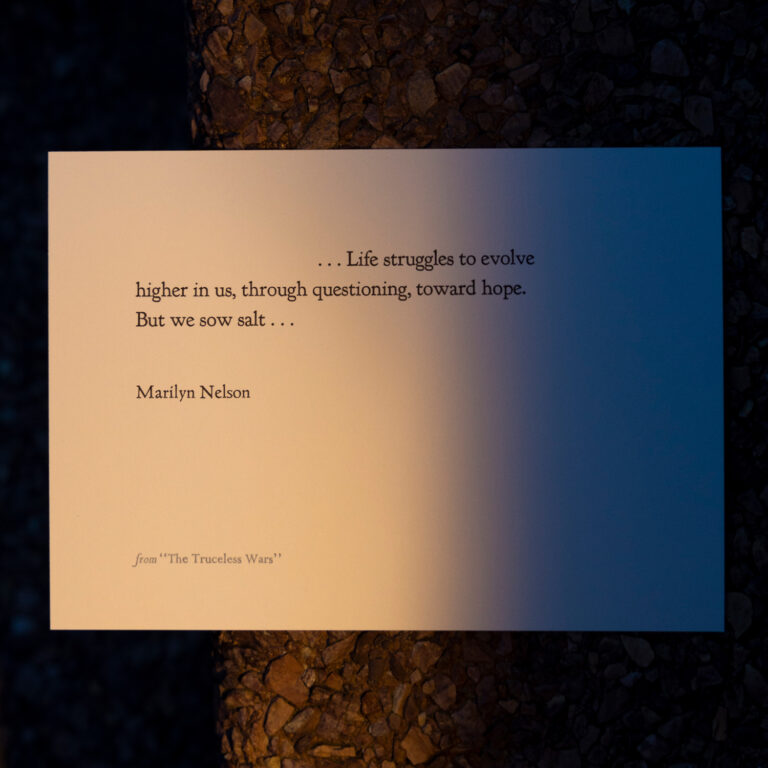
Letterpress print by Myrna Keliher. Photography by Lucero Torres. © All Rights Reserved.
Guest
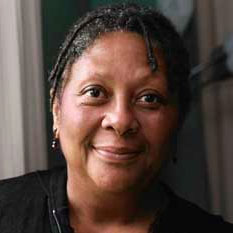
Marilyn Nelson was born in Cleveland, Ohio, the daughter of a school teacher and a U. S. serviceman, a member of the last graduating class of Tuskegee Airmen. She is the author or translator of more than 20 books and chapbooks for adults and children. A professor emerita of English at the University of Connecticut, Marilyn was Poet Laureate of Connecticut, 2001– 2006, and founding director of Soul Mountain Retreat, a writers’ colony, 2004-2010.
Transcript
Transcription by Heather Wang
Pádraig Ó Tuama: My name is Pádraig Ó Tuama, and one of the things I love about reading poetry, and one of the things I love about making Poetry Unbound, is the opportunity to do a close reading of a poem. To do a close reading of a poem is to look at its techniques and to look at what it’s saying, but it’s also to be closely read by the poem, that the poem reads you back as you read it. And in this way it can function somewhat like a call to pay attention to your life in a new way.
[music: “Praise the Rain” by Gautam Srikishan]
“The Truceless Wars” by Marilyn Nelson:
“The Truceless Wars”
“among beasts, and among men, are worlds apart.
The pigeon lays down fluttering life to flash
a russet tail. The haddock becomes harp seal,
then polar bear. The squirming termite licked
from a sharp stick awakes to invent tools.
The lamb lies down within the lion, yawns
yellow-fanged, and sleeps. Life struggles to evolve
higher in us, through questioning, toward hope.
But we sow salt. We leave a ground-zero wake
of futurelessness. Take the way a life
devolves from thought to blind mouths in the dust
wasted by semiautomatic fire.
This flesh is foolscap. We think we’re so smart,
but we create nothing, nothing. Nothing.”
[music: “Toothless Slope” by Blue Dot Sessions]
The first time I read this poem I counted the lines and thought, this is a sonnet, my God. And I always think of a sonnet as a punch of a poem, like a fist, hitting you to make you look at something not just once, but twice, because that’s part of the technique of a sonnet, is that it has a volta in the middle of it. “Volta” is an Italian word. It’s where in English we get the word “revolver” or “revolt” or “revolution.” So the idea in a sonnet is that it makes you look at something and then turn around and look at something else again, or look at something in a new light. This sonnet compares the wars of beasts with the wars of humanity, the wars of us and we and “men,” as she calls it.
A sonnet is usually in two halves, not necessarily of equal length, and this one is based on eight lines followed by six lines, making a 14-line poem. And the first eight lines mostly describe the kind of destruction you see in nature: it’s not pretty, but it’s functional. Marilyn Nelson goes into the biblical idea of the lion lying down with the lamb and says: Actually, no. “The lamb lies down within the lion,” as food. So there’s no sentimentality at all. And a polar bear eats a seal that had itself eaten a fish, and the termite is the brain food of an animal that makes its own tools. And even the pigeon creates art in its death, fluttering that russet tail.
And then there’s the statement about observing death, which begins to bring us into a turn: “Life struggles to evolve / higher in us, through questioning, toward hope.” And in this, Marilyn Nelson is proposing in a certain sense the great quest of humanity, that we are part of a world full of beasts who are evolving, who are staying alive. And she says that the vocation of us as humanity is that life is trying “to evolve higher in us, … toward hope,” by the use of questions.
And then the second part of the poem, it turns completely. It starts off with a “[b]ut,” almost like she’s contradicting herself. And she turns back on herself and says, “we sow salt.” What happens when you sow salt? It doesn’t grow. It stops things growing. “[L]eave a ground-zero wake / of futurelessness” — in a certain sense what she’s saying is that our wars, our “truceless wars” as humanity are without the possibility of a future. They’re simply for the purpose of annihilation.
[music: “Hermes Gray” by Blue Dot Sessions]
One of the most difficult questions that I always found, working in conflict resolution, was to ask people who were locked in conflict, what do you want?, because it is so difficult in the midst of conflict to name what you want, because somehow a positive outcome can often seem synonymous with: I want to win, and I want them to lose. And disentangling those things from each other, those energies from each other, can be so difficult. To win, to destroy, to create a “nothing,” to see somebody else suffer, to be vindicated, all of these questions are so difficult to discern, when you’re locked in conflict yourself.
And this is why I think it’s so brilliant that Marilyn Nelson is posing this subterranean question in this sonnet, because a sonnet is a little song — that’s what the word means — and what she’s offering is a little song, offering the capacity, with fairly harsh questions, to ask yourself, what am I creating? What am I doing? What am I sowing? In what way am I corresponding to the way that the future is seeking to evolve in us, with hope, through questions? It’s a song of self-examination, a song of interruption, and a song of a hoped-for accountability.
[music: “Inessential” by Blue Dot Sessions]
This 14-line poem isn’t just a magnificent example of a sonnet, but it’s also a magnificent example of using sonics in a sonnet. So she uses alliteration: “among … among,” in the early part of the poem, and “fluttering … flash[ing],” “haddock … harp,” “sharp stick,” “lamb lies,” “yawns / yellow-fanged,” “sow salt,” and then the end, “nothing, nothing. Nothing.” There’s an extraordinary beat and a percussion in the poem.
I find that her capacity to create these sonic percussions between those sounds reaches, again, not only an alliteration; it reaches out through some of the syllables of certain words. And it is most particular in this line: “wasted by semiautomatic fire.” Six syllables in “semiautomatic,” and it almost feels like you’re hearing the bam-bam-bam-bam-bam of a semiautomatic weapon, in the way that that word comes across. So there’s an urgency in the poem, and the poem is creating the sound of some of the very threats that it’s addressing and asking, as a summons of attention, to say, Pay attention to this. What do you wish to create?
[music: “What Did You Not Hear” by Gautam Srikishan]
The idea that art is meant to disturb the comfortable I think is particularly found in this extraordinary short punch of a poem. Throughout it there’s a deep knowledge of what she’s saying the particular call of humanity is; to evolve through questioning, toward hope, and to do that alongside animals. Often the idea can be that humans have evolved more than animals, but in this poem Marilyn Nelson is saying that when you look at the economy of understanding, resource, even in carnivorous animals, even in ways within which beasts and birds are able to find a way to flutter with flourish into their last moments, she is highlighting that to us to say, well, what are we creating in our relationship with resources, in our relationship to life?
So this poem has a really firm belief in the role of being alive, which is to be the site in which life builds upon itself with questions. I think it’s asking really pragmatic questions about the here and now. What do you want? How can we live alongside each other, and who am I, and who are you, and who are we together? Even as we know we’re living and dying and hopefully evolving, how are we contributing to the longevity of a planet that can flourish in itself?
At the heart of this poem is a play on the idea of human nature and nature. Often, we speak of ourselves like we’re not part of nature. We are part of nature. And in this holding together of these two halves of the sonnet, there is nature as exhibited in beasts and nature as exhibited in terrible actions by humanity. I was almost going to say “beastly” actions by humanity, but I think that’s unfair on the beasts.
[music: “Calisson” by Blue Dot Sessions]
This poem ends on the threefold repetition of “nothing, nothing. Nothing.” And it’s arresting, and it’s hard to feel happy at the end of this poem. And I don’t know that this poem is wanting people to feel happy by the end of it. But one of the things that I think the poem does want is to pay attention to the middle. “Life struggles to evolve / higher in us, through questioning, toward hope” — here Marilyn Nelson is saying: this is the point of being human — to evolve, to struggle with questions, towards hope; that hope is the possibility that calls humanity into continually evolving and paying attention.
And hope isn’t something abstract. She’s finding hope in the way that animals are part of a sustaining ecosystem, rather than engaging in wars, because the wars of animals, she says, are worlds apart from the wars among men. And in this way hope is found in the most present reality and awareness of nature and recognizing that human nature can sometimes be an aberration from what we might call “unconscious” animals, who aren’t aware of themselves but who nonetheless are demonstrating a way of being in the world, evolving in the world, that is sustainable, unlike ourselves.
[music: “White Filament” by Blue Dot Sessions]
“The Truceless Wars” by Marilyn Nelson:
“The Truceless Wars”
“among beasts, and among men, are worlds apart.
The pigeon lays down fluttering life to flash
a russet tail. The haddock becomes harp seal,
then polar bear. The squirming termite licked
from a sharp stick awakes to invent tools.
The lamb lies down within the lion, yawns
yellow-fanged, and sleeps. Life struggles to evolve
higher in us, through questioning, toward hope.
But we sow salt. We leave a ground-zero wake
of futurelessness. Take the way a life
devolves from thought to blind mouths in the dust
wasted by semiautomatic fire.
This flesh is foolscap. We think we’re so smart,
but we create nothing, nothing. Nothing.”
[music: “Praise the Rain” by Gautam Srikishan]
Chris Heagle: “The Truceless Wars” comes from Marilyn Nelson’s book Faster Than Light. Thank you to Louisiana State University Press, who gave us permission to use Marilyn’s poem. Read it on our website, at onbeing.org.
[music: “Praise the Rain” by Gautam Srikishan]
Poetry Unbound is: Gautam Srikishan, Erin Colasacco, Eddie Gonzalez, Lilian Vo, Lucas Johnson, and me, Chris Heagle.
Our music is composed and provided by Gautam Srikishan and Blue Dot Sessions.
This podcast is produced by On Being Studios, which is located on Dakota land. You may enjoy our other podcasts: On Being with Krista Tippett, Becoming Wise, and This Movie Changed Me. Find those wherever you’d like to listen, or visit us at onbeing.org to find out more.
Books & Music
Recommended Reading
The On Being Project is an affiliate partner of Bookshop.org and Amazon.com. Any earnings we receive through these affiliate partnerships go into directly supporting The On Being Project.






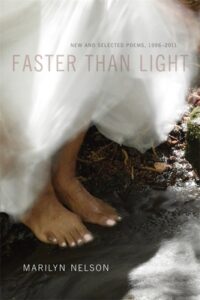

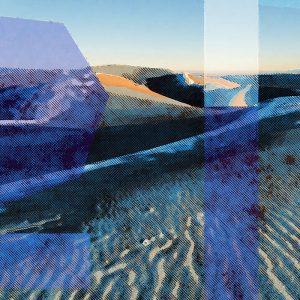

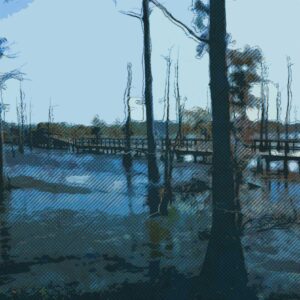

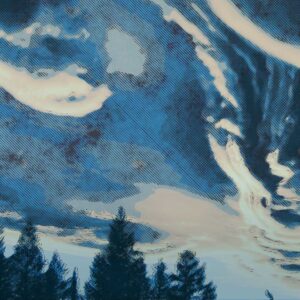
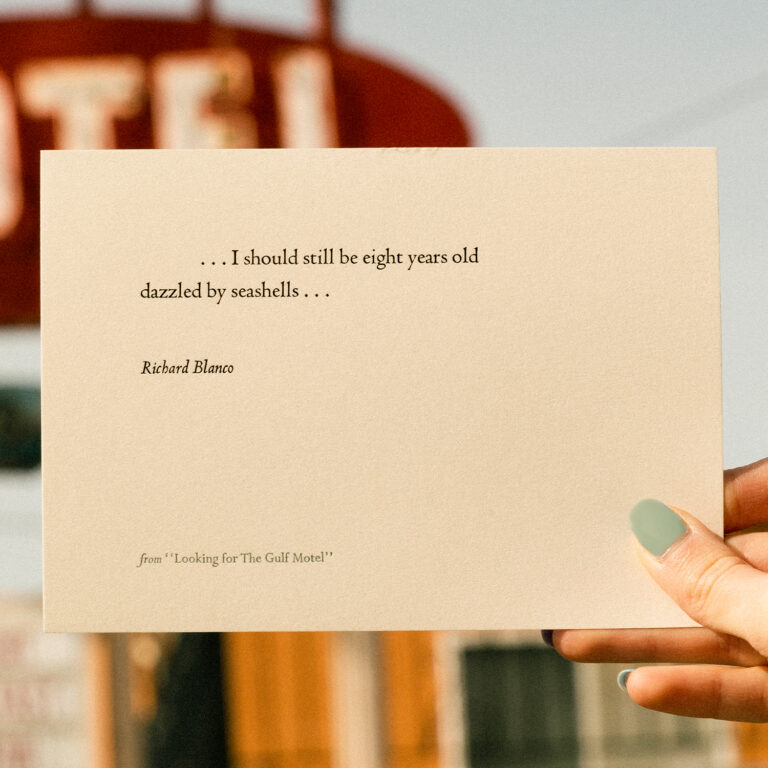
Reflections